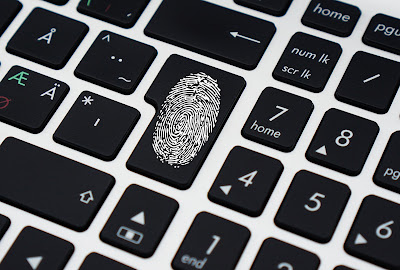Viruses
Computer
virus is a malicious program that requires a host and is designed to make a
system sick, just like a real virus. Viruses can spread from computer to
computer, and they are far more malicious. Broadly three types if viruses are:
-
1.
File
infectors – attach themselves to a program file.
2. Boot sector viruses –
install themselves on the beginning tracks of a hard drive.
3. Macro viruses – infect data
files.
Most
viruses are spread by e-mail attachments and warm them to be suspicious of any
files attached to unsolicited messages. The following are characteristics of a
computer viruses.
Ø It is able to replicate.
Ø It requires a host program as a carrier.
Ø It is activated by external action.
Ø Its replication ability is limited to the
(virtual) system.
How
computer viruses spread?
Computer
viruses move from computer to computer by attaching themselves to files or boot
records of disks and diskettes. These days it is not uncommon to find them in
e-mail attachments and other programs that can be downloaded from the internet.
A
virus is a relatively passive agent that can be travel from one file to another
file on the same computer if the infected file is executed, from computer
memory to a file on disk, on a disk that is carried one computer to another
(some companies prohibit floppy drives, thereby preventing users from copying
information onto their computers), on e-mail attachment executable files, and
over a modem or network connection.
Viruses
main objected is to make your system unstable and cause harm to data. Mainly these
cause damage in many ways: -
Ø Can destroy file allocation tables (FAT) and
lead to the corruption of an entire file system, resulting in the need to fully
reinstall and reload the system.
Ø Can create bad sectors on the disk, destroying
parts of programs and files.
Ø Can decreases the space on hard disks by
duplicating files.
Ø Can format specific tracks on the disks or
format the entire disk.
Ø Can destroy specific executable files and
alter data in data files, causing a loss of integrity in the data.
Ø Can cause the system to hang so that it does
not respond to any keyboard or mouse movements.
ALSO CHECK: -what is port and its types ?
Trojan
horses
A
trojan horse is code hidden in a program such as a game or spreadsheet that
looks safe to run but hidden side effects. When the program is run, it seems to
function as the user expects, but in actually it is destroying, damaging, or
altering information in the program in which to embed itself. An example of a Trojan
horse would be a Christmas executable that, when executed, pops up with an
animated figure of Santa Claus and a caption saying “Merry Christmas”. In the
background, extra code could be deleting files or performing others malicious
actions.
How
Trojan horse spread
Trojan
horse generally are spread through e-mail and exchange of disks and information
between computers. Worms could also spread Trojan horses.
Damage
caused by Trojan Horses
The
damage that Trojan horses cause is much the same as what a virus causes. Most of
the time the users are unaware of the damage it is causing because of the
Trojan horse’s masking effects.
Worms: -
A worm is a program designed to replicate.
The program may perform any variety of additional tasks as well. The following
are characteristics of a worm:
Ø It is able to replicate.
Ø It is self-contained and does not require a
host.
Ø It is activated by creation process (it needs
a multitasking system).
Ø If it is a network worm, it can replicate
across communication links.
Worms are program that run independently
and travel from computer to computer across network connections. Worms may have
portions of themselves running on many different computers. Worms do not change
other program, although they may carry other code that does.
How
Worms Spread:
-
Worms are autonomous agents capable
propagating themselves without the use of another program or intervention or
action by a user. Worms are found primarily on computers that are capable of
multitasking and are connected to network.
Damage
that Worms can cause:
-
Most worms disrupt services and create
system management problem. Some worms scan for passwords and other loopholes
and then send the information back to the attackers. In some causes worms can
install Trojan horses or viruses that cause damage to the system.
Spam: -
Spam refers to electronic junk mail or
junk new group posting. Some people define spam even more generally as any
unsolicited e-mail. Merriam -Webster dictionary defines spam as unsolicited usually
commercial e-mail sent to a large number of addresses.
Avoiding
spam: -
Ø One way to help avoid spam or junk mail is to
create a filter that finds and does something to email that you suspect is spam.
Ø Another tip is not to register yourself with
true id to sign up for things on the Internet. These places often share that
e-mail address with other companies that then send you spam.
Virus prevention is not a difficult task.
All you need to be is extra careful and ensure to lead virus free computing
life.
Ø Never use a “foreign “disk or CD without
scanning it for viruses.
Ø Always scan files downloaded from the internet
or other sources.
Ø Never boot your PC from a floppy unless you
are certain that it is virus free.
Ø Write protect your disks.
Ø Use licensed software.
Ø Password protect your PC to prevent unattended
modification.
Ø Make regular backups.
Ø Install and use antivirus software.
Ø Keep antivirus software up to date.
Jai Hind
what is computer virus and how to protect yourself from viruses?
 Reviewed by mushrafkhan772
on
June 13, 2018
Rating:
Reviewed by mushrafkhan772
on
June 13, 2018
Rating:
 Reviewed by mushrafkhan772
on
June 13, 2018
Rating:
Reviewed by mushrafkhan772
on
June 13, 2018
Rating:












Helpful information
ReplyDeletethanx surjit
DeleteNice document
ReplyDelete